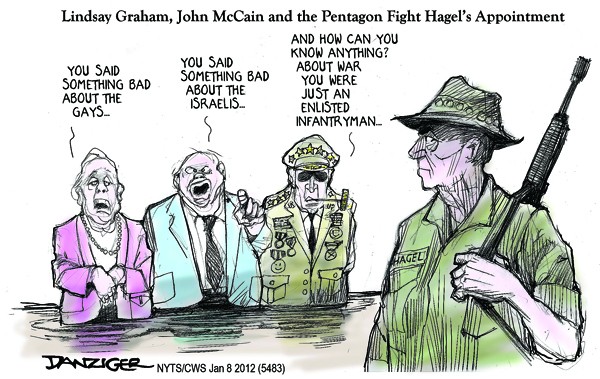Two fresh developments — one local, one national — deserve our comment, because each, in its own way, demonstrates a willingness to think anew about old problems and to do so, as they say, outside the box.
The proposal put forth Monday by Memphis City Council members Jim Strickland and Shea Flinn for a referendum on raising the city’s sales tax rate by a half percent in order to fund pre-K education and to reduce city property taxes is a constructive and timely effort to deal with two undisputed needs. Strickland, known to be contemplating a race for mayor at some future point, has made something of a name for himself as an opponent of new taxation in general and of the city property tax in particular. His case against the latter is that, as he repeated again this week, the city’s property tax rate, the highest in Tennessee, is driving residents outward into Shelby County at-large or even outside the county’s boundaries.
Nor has Strickland been inordinately fond of the sales tax as a revenue device, having opposed it previously both in the city and, in the case of last November’s failed referendum for an increase in the sales tax, at least partly on the perfectly legitimate grounds that a sales tax is by its nature regressive. Strickland has shown admirable flexibility in joining this week with Flinn, whose successful sponsorship last year of a city sales tax referendum proposal was canceled out by the county referendum, which superseded it.
The two council members have also shown a sense of responsibility in arranging for the potential proceeds of a city sales tax increase to be divided between pre-K needs (which would have received substantial funding under the defeated county proposal) and alleviating the city property tax rate.
 Danziger
Danziger
The other governmental initiative we endorse occurred on the national scale, this week, when President Obama chose to risk his political capital by making two controversial appointments to important cabinet positions — former Republican senator Chuck Hagel as defense secretary and John Brennan, formerly deputy national security adviser, as head of the Central Intelligence Agency.
Both men have made a habit of rendering independent judgment on significant matters of national policy and have resisted peer pressure — which is even more significant in Washington than in high schools across the nation — to play follow-the-leader blindly. Hagel is especially to be commended for his decision, after first supporting George W. Bush’s Iraq folly as a senator, to go public with his opposition to that unnecessary war as contrary to the nation’s strategic interest. That, plus his insistence on an evenhanded policy regarding the long-standing Israel-Palestine dispute, earned Hagel the distrust of many in Congress, especially among his former Republican colleagues. The president knew that he’d have a fight on his hands going in, and, in picking Hagel, he will surely get one.
That Obama has acted on principle regarding an appointee is an encouraging sign to all those who have wondered if the president is too cautious and conciliatory by nature. In this instance, clearly, he has shown himself to be resolute, and we commend him.